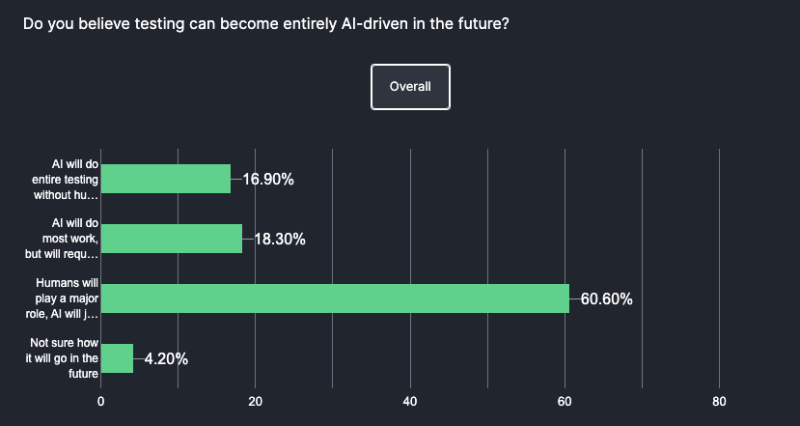Artificial Intelligence (AI) has experienced unparalleled growth, revolutionizing numerous industries by automating processes, improving decision-making, and extracting valuable insights from significant datasets. From healthcare, finance to retail and manufacturing, AI services have become essential to enhance performance and innovation.
However, as AI`s competencies expand, so do concerns about data privacy. The significant amounts of personal data required to train AI models and the possibility of misuse or breaches have heightened the need for robust data privacy measures. This blog will discover the intersection of AI and data privacy, focusing on the technical components that ensure the secure and moral use of AI services.
Understanding AI Services and Data Privacy
AI services utilize algorithms and models to analyze data, anticipate outcomes, and automate tasks. However, data privacy refers to the safety of private data from illegal access and use. The key concern for enterprises is to balance the advantages of AI with the need to safeguard personal data.
1. Data collection and consent
• Transparency in Data Collection: AI services require massive datasets to function effectively. It`s essential to ensure that data-collection processes are transparent. Users should be informed about what data is being collected and for what purpose.
• Obtaining Consent: Before collecting data, corporations must gain specific consent from individuals. This ensures that users are aware of how their data can be used by AI systems.
2. Data Anonymization Techniques
• Purpose of Anonymization: To protect data privacy, sensitive data must be anonymized. Anonymization involves altering the information so that people cannot be easily identified.
• Techniques: Common strategies consist of data masking, pseudonymization, and k-anonymity. These techniques help maintain the integrity of the data and protect individual privacy
3. Secure data storage
• Encryption: Encrypting data at rest and in transit is essential to prevent unauthorized access. AI services should use sturdy encryption requirements to protect data.
• Access Control: Implementing strict access manipulation measures guarantees that only legal employees can access sensitive data. This consists of multi-factor authentication and role-based access control.
4. Ethical AI Development
• Bias Mitigation: AI models can inadvertently perpetuate biases present in training data. Developers must actively investigate and mitigate these biases to ensure fair outcomes.
• Accountability: Organizations must set up clear accountability for AI systems. This consists of documenting decisions made by AI patterns and being transparent about the limitations of these systems.
5. Data Minimization
• Principle of Minimization: Collect only the relevant data; this is essential for the AI services to function. Avoid collecting excessive or irrelevant data that would pose a privacy risk.
• Data Retention Policies: Implement rules that specify how long information might be retained. Regularly overview and delete information; this is no longer needed.
6. Regulatory Compliance
• Understanding Regulations: Familiarize yourself with data privacy guidelines, including the General Data Protection Regulation (GDPR), the California Consumer Privacy Act (CCPA), and the Health Insurance Portability and Accountability Act. It is essential for firms to adhere to those standards.
• Regular Audits: Conduct regular audits to make sure that AI services observe applicable data privacy laws. This allows for figuring out and addressing any compliance gaps.
7. User empowerment and control
• User Rights: Users have the right to access, correct, and delete their records. Providing equipment for users to manage their data complements trust and transparency.
• Privacy by Design: Integrate privacy issues into the layout and improvement of AI services from the beginning. This proactive method facilitates addressing privacy issues early in the development process.
8. Advanced Privacy-Enhancing Technologies
• Differential Privacy: This technique provides noise to datasets to protect individual identities while permitting useful analysis. It is increasingly utilized in AI services to stability privacy with data utility. It`s increasingly utilized in AI services to stabilize privacy with record utility.
• Federated Learning: This method allows AI to learn across multiple decentralized devices or servers holding local record samples without changing them. This enables us to keep records private while still benefiting from collective learning.
• Homomorphic encryption: This encryption technique lets computations be performed on encrypted data without decrypting it first. It enables AI services to process sensitive data securely.
9. Continuous monitoring and adaptation
• Real-Time Monitoring: Implement structures for continuous monitoring of AI services to detect and respond to capacity data protection & privacy breaches promptly. Real-time indicators and automatic responses can mitigate risks effectively.
• Adaptation to New Threats: The landscape of data privacy threats is continuously evolving. Regularly update and adapt AI services to new threats and vulnerabilities to protect strong data and their privacy.
10. Collaboration and shared responsibility
• Stakeholder Collaboration: Collaboration among stakeholders, inclusive of developers, policymakers, and customers, is critical to coping with data privacy challenges effectively. Shared obligations ensure complete techniques and solutions.
• Educational Initiatives: Educating customers and stakeholders about information privacy practices and the effects of AI services foster a culture of awareness and vigilance. This can result in better compliance and proactive measures.
Conclusion
The intersection of AI and data privacy presents opportunities and challenges. While AI services offer considerable benefits, it is crucial to deal with data privacy problems to build trust and ensure compliance with regulations. Calsoft, with its expertise in AI and data privacy, is well-positioned to help businesses in adopting best practices. Our complete technique for data collection, anonymization, storage, ethical development, minimization, compliance, and user empowerment guarantees that businesses can harness the energy of AI while safeguarding personal information.
The integration of AI and data privacy is a delicate balance that calls for careful attention and proactive measures. Calsoft stays at the forefront of this stability, staying knowledgeable about the trends in data privacy and always refining practices to guard private information. With Calsoft`s support, businesses can confidently navigate the complexities of AI and data privacy, attaining technological development and robust data protection.










